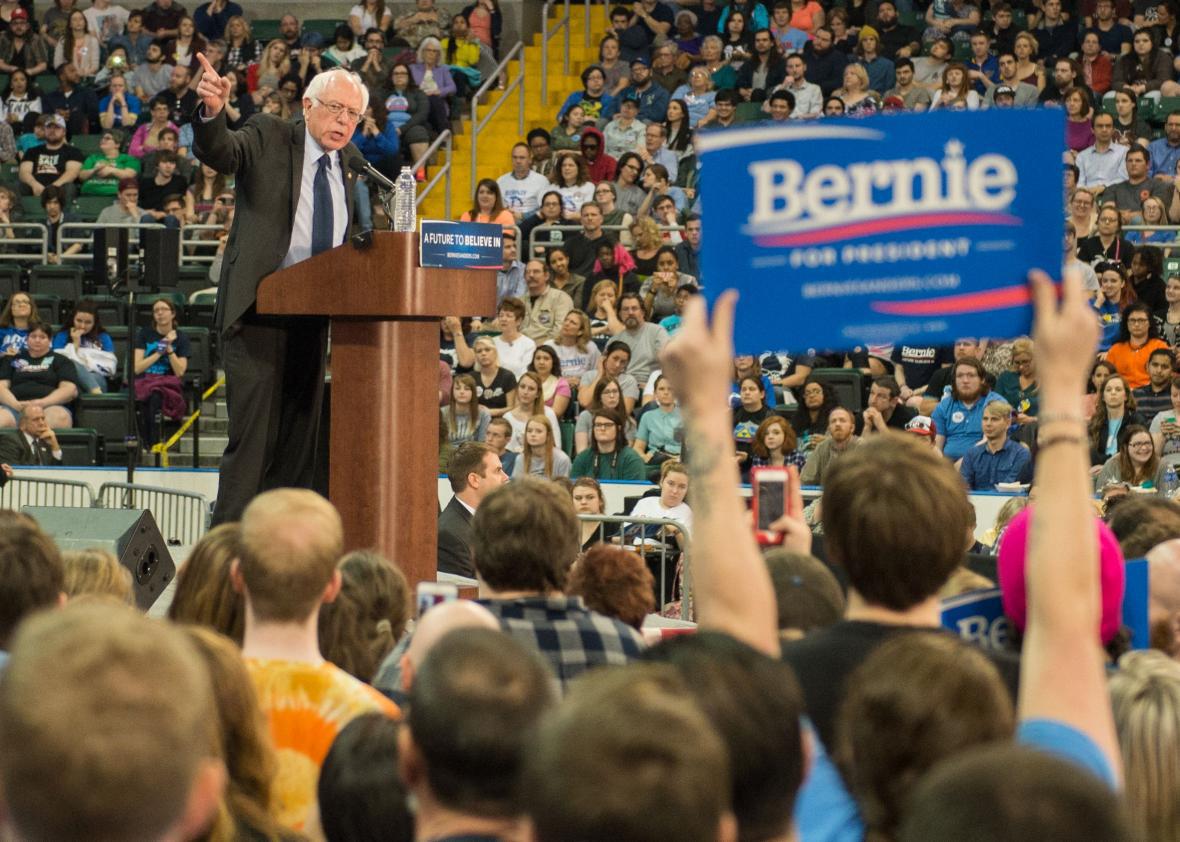Tuesday was another strong night for Bernie Sanders. The progressive champion won two of the day’s three nominating contests, beating Hillary Clinton by more than 50 points in Utah and Idaho. Those hefty margins of victory will pay delegate dividends: The Associated Press estimates that Bernie will take home either 17 or 18 of the 23 bound delegates up for grabs in Idaho, and at least 18 of the 33 in Utah. (His Utah haul could climb considerably, too; as of Wednesday morning, about a fifth of the votes still needed to be counted, leaving the winner of 10 bound delegates in a state Sanders dominated still to-be-decided.)
Bernie’s problem? His small-state victories will be largely offset—and perhaps even overshadowed completely—by Clinton’s win in Arizona, where there were 75 bound delegates at stake. With more than 95 percent reporting, Clinton led Sanders by about 18 points in the state and had won roughly twice the number of delegates. While those delegate estimates are just provisional numbers, they suggest that the three contests will combine to be more or less a wash:*
Arizona: 85 delegates (75 bound, 10 super)
Clinton won: 41 bound, 5 super
Sanders won: 22 bound, 1 super
TBD: 12 bound; 4 super
Current net: Clinton +23
Utah: 37 delegates (33 bound; 4 super)
Clinton won: 5 bound, 2 super
Sanders won: 18 bound, 0 super
TBD: 10 bound, 2 super
Current net: Sanders +11
Idaho: 27 delegates, (23 bound; 4 super)
Clinton won: 5 bound 1 super
Sanders won: 17 bound, 0 super
TBD: 1 bound, 3 super
Current net: Sanders +11
I hate to sound like a broken record, but unless something catastrophic happens to Clinton’s campaign, Sanders has pretty much no chance of passing her in the delegate count before the convention (even if he ultimately ends up with a small net-advantage in Tuesday’s contests). He can, and likely will, continue to notch a few more statewide wins—particularly in upcoming contests out West—but winning those state battles won’t be enough to win the delegate war. Yes, Hillary’s superdelegates could, theoretically, abandon her—but their general front-loving nature and establishment ties make that hard to imagine. As it currently stands, Bernie would need to win roughly two-thirds of the delegates up for grabs between now and June. Given the proportional nature of the Democratic contests, that’s simply too big of a lift.
*Update, Thursday, 7:05 a.m.: The AP has updated its delegate estimates now that more votes have been counted. The wire now expects Bernie to net 11 delegates on the day, so we’ve updated the headline. The larger point, though, still stands. Even with those small gains, Sanders still trails Clinton by a whopping 744 delegates in the updated estimates. He would need to win 67 percent of the yet-be-allocated delegates to claim the nomination. To date, he’s secured only 36 percent of those that have been allocated.
Elsewhere in Slate: Don’t Drop Out, Bernie
